Anti-Bullying Dance Workshop
Written by Grace and Noorpreet…
The dance workshop, for anti-bullying week, was great fun because we got to dance to songs. Each song was written by an artist who experienced bullying when they were younger. Our song was by Little Mix (Salute), encouraging us to stand up for ourselves. Near the end of the day, we got to share all of our dances, as did the the rest of KS2, and showed it to the rest of the school.
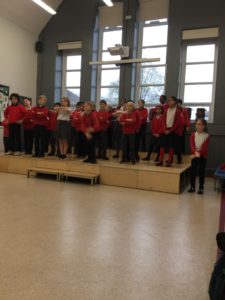
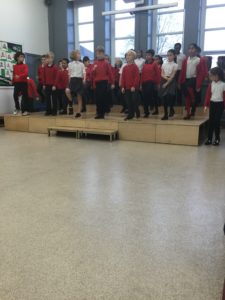
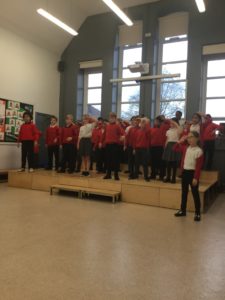
Homework Review
Written by Lori and Nicky…
First, we went looking around at each other’s homework, which was excellent of course. After that, we watched Danny’s presentation. Then, we threw the bean bag around to see which one people liked the most.
Here’s a few examples of our favourite responses:

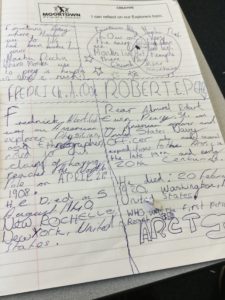
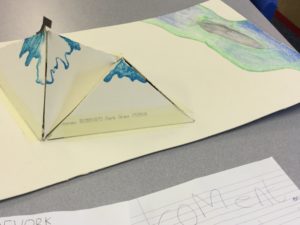
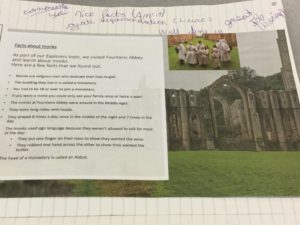
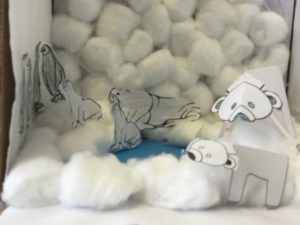
17 November 2017
For all children in Year 1 to Year 6, the homework this week is Talk Time and will be discussed in class on Thursday 23 November:
Which charity should our school support?
Next week, we will focus on identity, diversity and community in our Who do you think you are? themed week. As part of this week, children will think about our school charity. Currently, we support Yorkshire Air Ambulance and Leeds Mind. A previous School Council selected these because they wanted to help people, support a mental health charity and wanted to help local and regional charities. They were chosen because pupils passed on to School Councillors very clear and strong arguments.
We’ve helped these charities for two years now, so it’s time for a change. We need you to have a discussion at home about which charity would be best for us to support. We will now support one charity for one year. Each class will discuss this and then the councillors will bring the views and ideas together to decide on the charities.
Once your child has decided on a charity, make sure they have clear, powerful reasons to support their views.
You might want to discuss whether we support…
- a local charity
- a children’s charity
- a charity which helps a vulnerable group in our community
- should we ensure the new charities are very different to the current ones or previous ones?
- should we need to have charities at all?
- if your child was to set up a new charity, what would (s)he choose, and (as always) why?
Mindfull or mindful?
Would you like to find out more about mindfulness and how it can be used to support your child at home?
As part of our whole school themed week next week, all children will be taking part in mindfulness workshops. There’ll also be a parent/carer session on Monday 20 November at 2:30-3:15pm.
Please contact the office if you would like to attend.

Veggie burgers
Today, half of Year 6 made veggie burgers. Everyone found it extraordinarily fun as we have not cooked in ages! We all used cooking skills to make our bake: bridge and claw chopping methods, grating, frying, blending, moulding and – of course – washing up.
We tried out three different recipes. One was carrot-based, another was courgette-based and the final was mushroom-based. Not everyone expected they’d enjoy it but many loved it! For example, Noah didn’t expect to like it but absolutely adored it!!!
Take a look at us in action.
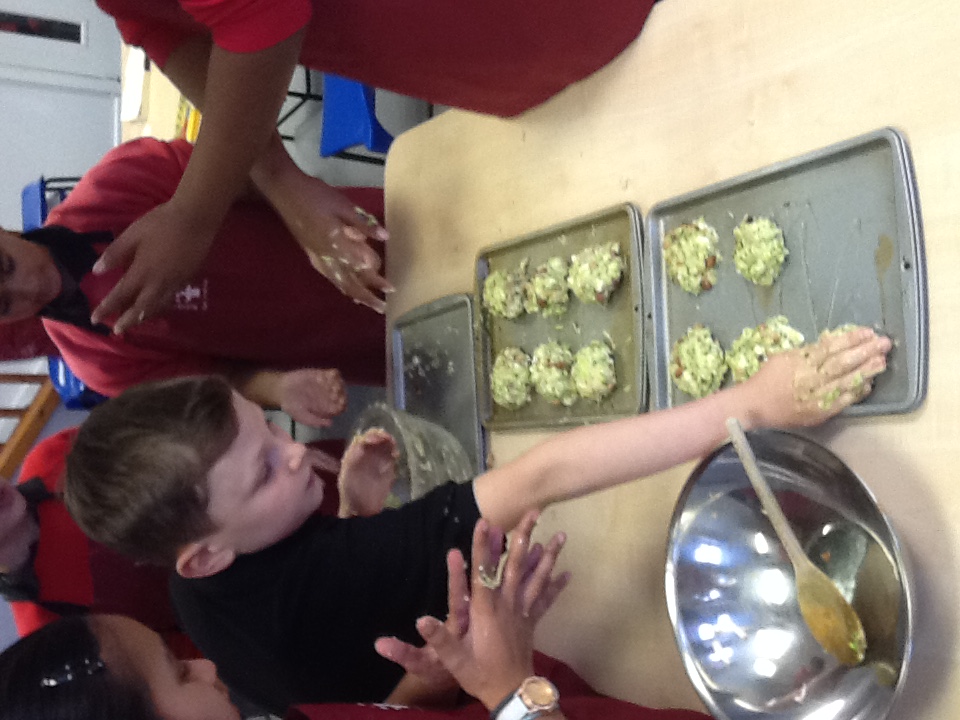

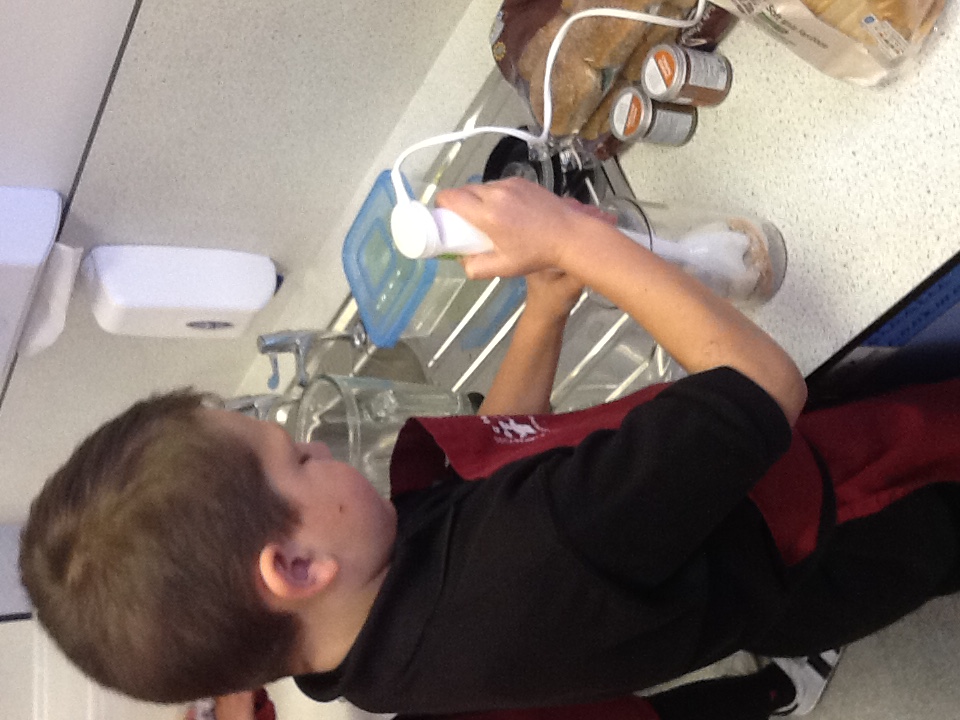


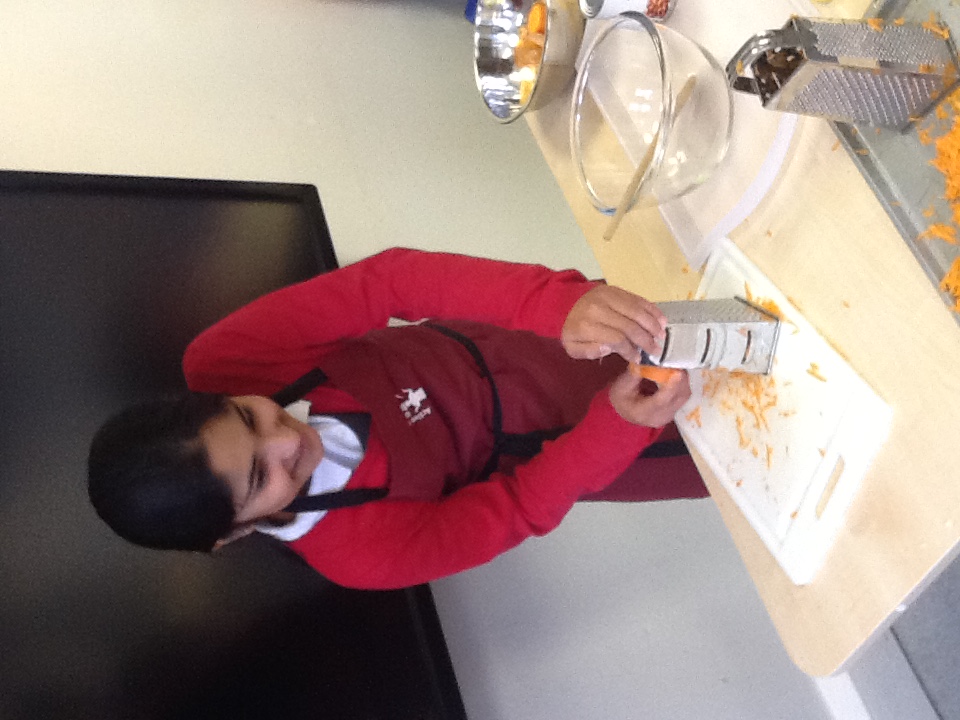
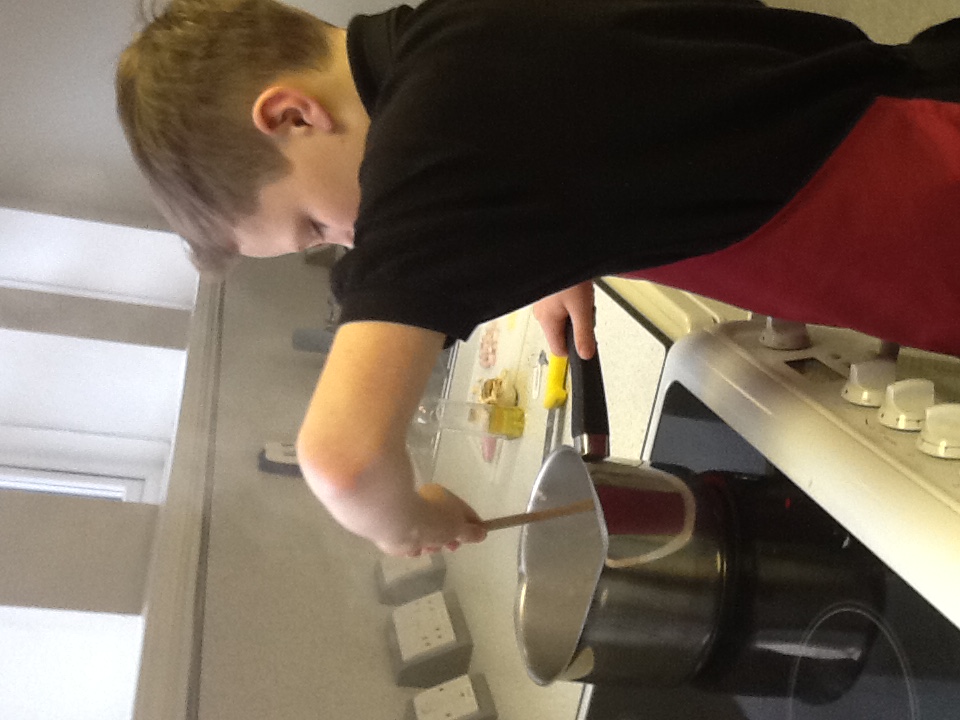
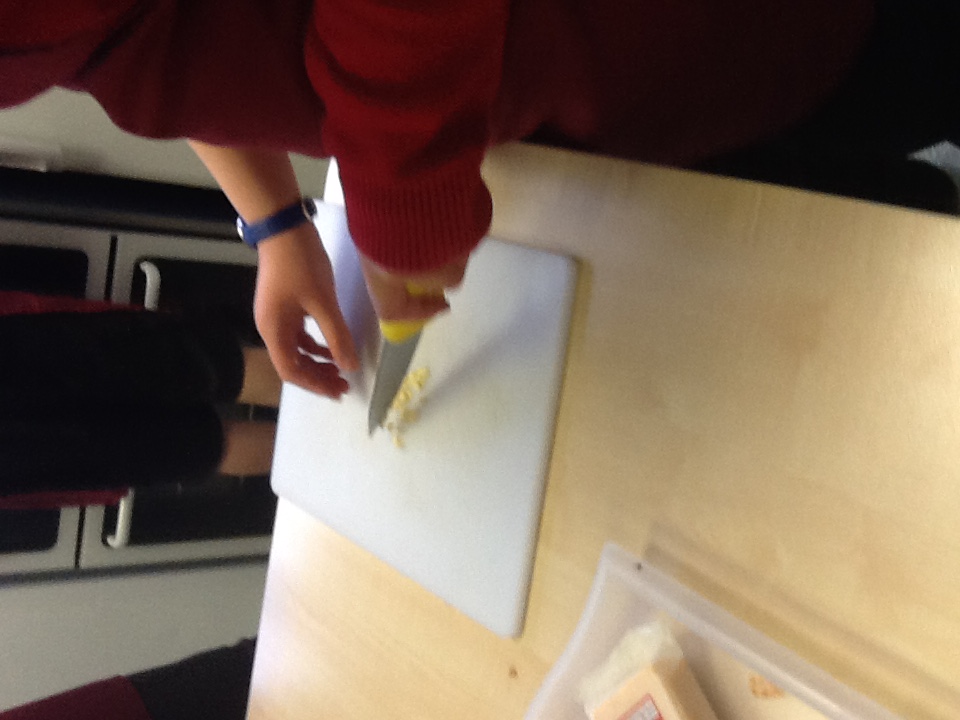
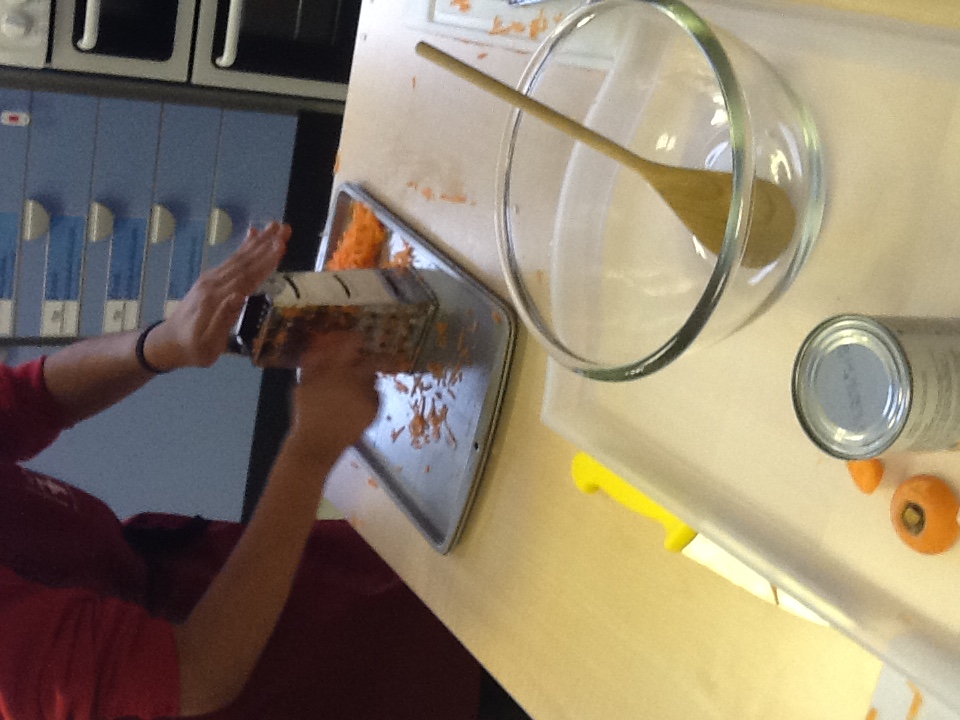
Adding detail
Our great writing continued today as we explored the effect of using adverbs in our writing. We finished the lesson by completing word studies in pairs on quite ambitious adverbs – but ones which it would be possible to use in the descriptive writing we’ll be doing later in the week.
Word studies are a great thing for you to do at home too, particularly with spelling words the children are finding difficult to learn or understand.
In our studies this week, we made sure we identified the definition of the word, drew an image of what it means and used it in a sentence. Then we could decide what our final quarter would be: word family, spelling practice, synonyms or antonyms.



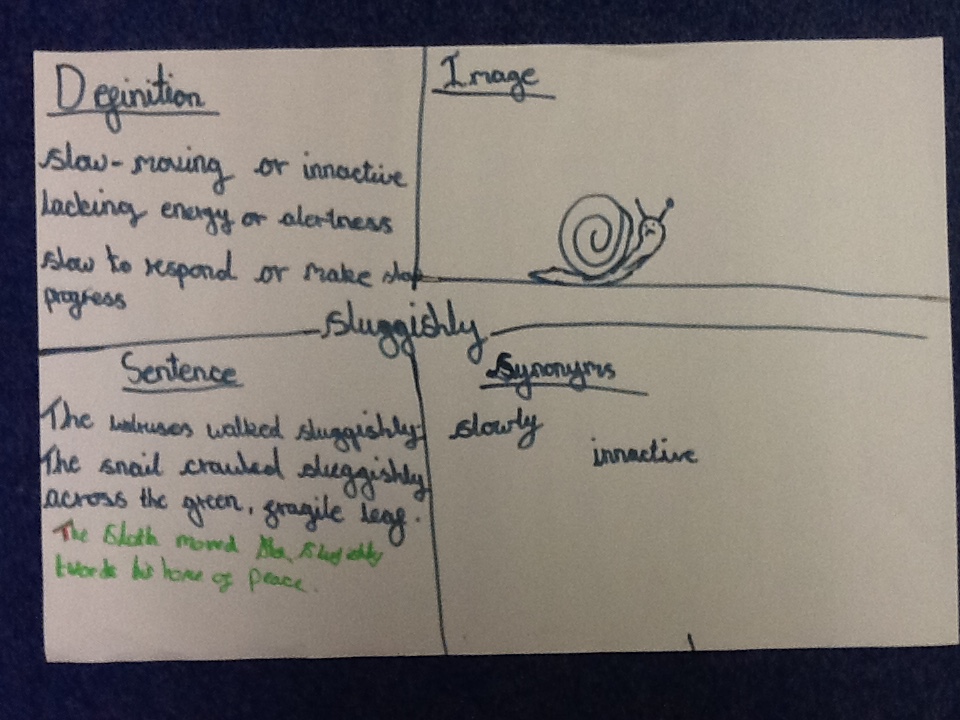
03 November 2017
| Homophones
This week’s words to learn are all homophones: words that sound the sound the same but have different meanings. Children should not only learn how to spell the words but also how to use them correctly in context. Children will be tested on these words on Friday 10 November 2017. |
| isle – aisle |
| allowed – aloud |
| affect – effect |
| herd – heard |
| past – passed |
| your – you’re |
| their – there – they’re |
| of – off |
| wear – we’re |
| to – too – two |
Fountains Abbey trip
Today, Y5 and Y6 visited Fountains Abbey as part our Explorers topic. The trip was particularly exciting because each group were able to plan their own exploration of this National Trust site.
Whilst some of us were off exploring the Studley Royal Gardens, the rest of us were spending ‘A Day in the Life of a Monk’. In this fun workshop, led by National Trust volunteers, we visited the abbey, learnt lots about its history and learnt how monks lived their fascinating lives. Did you know that monks considered heating using a fire a luxury? Or, that they had seven church services a day and one in the middle of the night? Even harder to imagine, they lived almost their whole life in silence. (Some of us would certainly struggle with the last one!)
When exploring, we each had a role to play within our group: map-reader, photographer, visitor surveyor, artist and time-keeper. We were in charge of making sure we visited the places of interest the people in our group wanted to see and had to ensure we were back at our ‘base’ at the correct time. It was really fun to politely approach members of the public and carry out a visitor survey (a geography fieldwork skill). Can you believe that someone had travelled all the way from the USA?
To enhance our geography learning from the classroom, we continued to compare Fountains Abbey with Machu Picchu. We found lots of similarities: they have similarly interesting histories, they are both ruins, they first became ruins in quite similar ways, both places were used by religious people to celebrate a god and we found out that farming was crucial in both places.
We all had a great time and will certainly sleep tonight (the adults will anyway). As always, the children were fantastic ambassadors for our school and we received several compliments from the public.
Here’s some quotes from the day:
- ‘I love nature now!’
- ‘It was great that we chose which parts of Fountains Abbey we wanted to explore.’
- ‘My favourite part was learning how a monk loved their life!’
- ‘It was great finding out about the life of a monk!’
- ‘It was really fun to go for a walk in a nice place!’
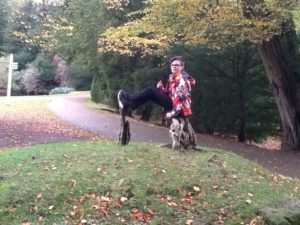
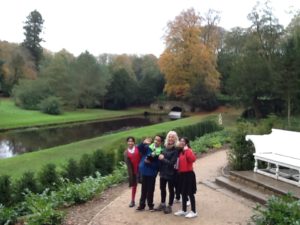
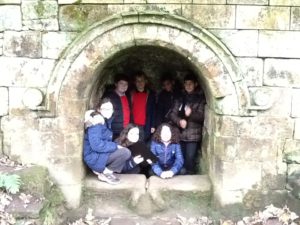
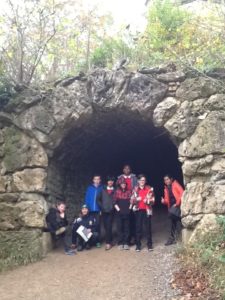
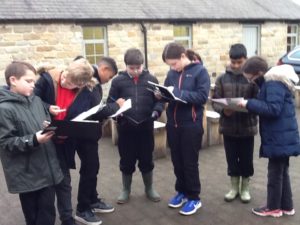
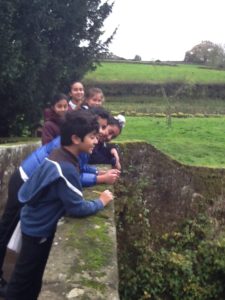
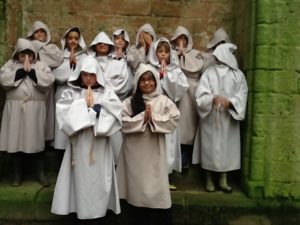
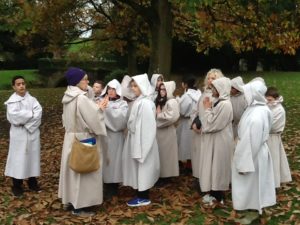
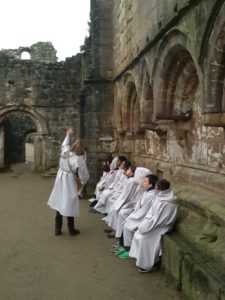

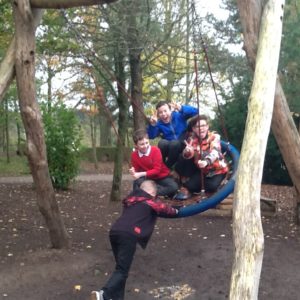
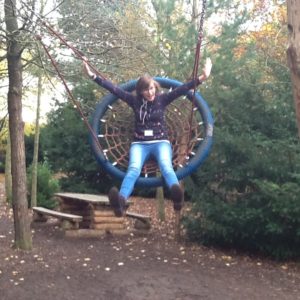
Identity
Our Living and Learning theme this half-term is Identity. Pupils will learn about their rights and responsibilities, what makes themselves and others special, valuing the similarities and differences between themselves and others and what is meant by community. This will be taught through our Living and Learning sessions and also two focused weeks – Anti-bullying week (13 November) and Who do you think you are? (20 November).
Our full Living and Learning long term plan is now available on the health pages and you can keep up to date with our weekly Living and Learning statements on the parent noticeboard in the playground and also on the school calendar.
Congratulations!
Congratulations to our new Reception school councillors.
Here they are delivering their manifestos!

